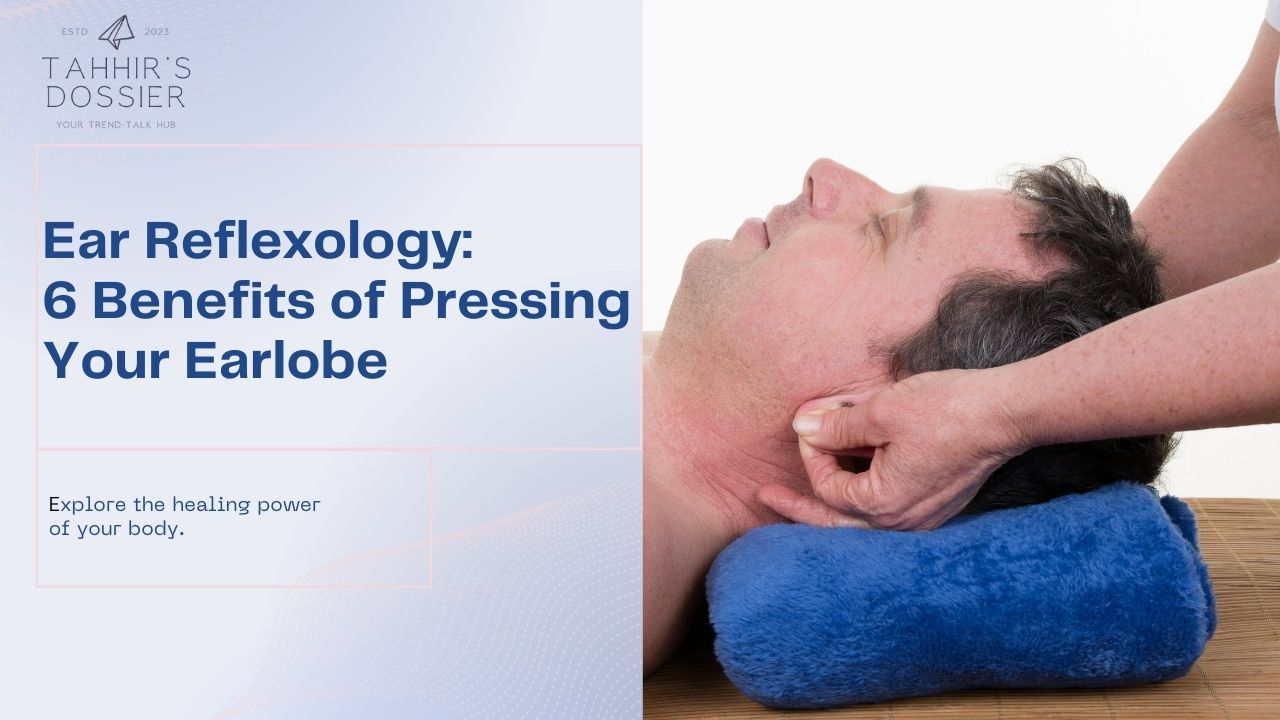Ear reflexology (pressing on the earlobe), especially the fleshy part called the lobule, has a number of possible health effects. Some of these benefits may come from cultural and traditional practices, but there may not be a lot of scientific proof to back them up. Moreover, it’s important to remember that everyone will react differently. And if you have specific health issues, you should talk to a doctor. Following are the six perceived benefits of pressing the lobule:
Benefits of Ear Reflexology
01. Stress Relief: Some supporters say that massaging or pressing on the earlobe can help you rest and feel less stressed. Acupressure and traditional Chinese medicine often focus on certain points on the ear, such as the lobule, to ease worry and tension.
02. Headaches and Migraines Relief: In some alternative health practices, putting pressure on the lobule will help with headaches and migraines. Moreover, some people who practice acupuncture and reflexology may use the lobule as a point to help with headaches.
03. Sinus and Ear Congestion: Some people may feel better after applying light pressure to the lobule to help with sinus and ear congestion. This method is a part of ear reflexology.
04. Promoting Relaxation: Touching or pressing on the earlobes will make you feel comfortable and at ease. It might be something that some people do to calm down.
05. Improved sleep: Some acupuncturists claim that stimulating certain ear points can promote deeper sleep and combat insomnia.
06. Addiction therapy: Ear reflexology is sometimes used as a complementary therapy to help manage cravings and withdrawal symptoms in addiction recovery.
It’s important to be careful with these kinds of practices and understand that how people see the benefits of pressing the lobule may depend on their own experiences and cultural views. Further, there may not be many scientific studies that back up these claims, and the success of these methods may vary.
As with any self-care practice, it’s advisable to seek guidance from a healthcare professional. Further ensure that it aligns with individual health needs and explores evidence-based approaches to wellness. If you’re curious and open to exploring alternative approaches, give it a try! Remember, safety and seeking professional medical advice remain paramount. So, listen to your body, do your research, and happy ear pressing!
